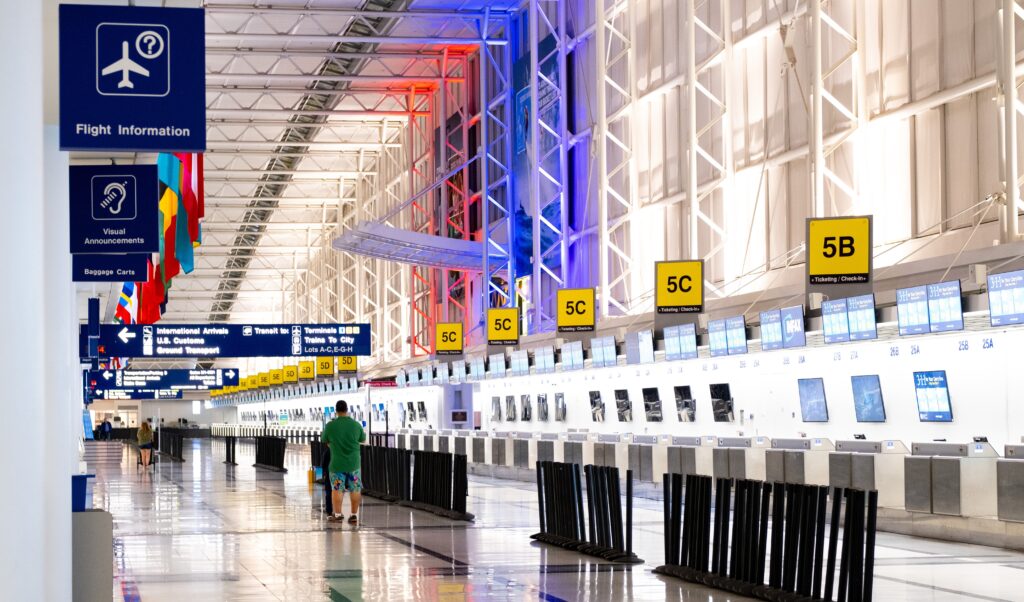By Steven Milstein

Location, location, location; the golden rule of real estate. If you were to ask any owner of real estate what the driving force behind the value of their property is, they would likely answer the location. Leasing space is no different. A business, especially a business that sells goods and foods, can either succeed or fail solely based on the location of the business; put simply, if a restaurant opens in a quiet or dangerous part of town, the chances of that restaurant succeeding are very low. Concession stands are a prime example; a concession stand in Times Square will have a lot of foot traffic and will probably succeed – so long as the rent is not astronomical – while a concession stand in the heart of Midwood would likely not. A unique location for concession stands is an airport. While it is undeniable that there is a tremendous amount of foot traffic in airports, leasing a space in an airport can be complicated, and is often highly regulated.
The Federal Aviation Administration (“FAA”) classifies three different types of airports based on total annual passenger departures:
- Primary Commercial Service Airports – which include the airports responsible for most of the annual passenger departures,
- Nonprimary Commercial Service Airports – which have less than 10,000 annual passenger departures, and
- Reliever Airports – which are airports that are generally used to relieve general aviation congestion.
Although different in size, each type of airport is similar in that they are all subject to various agencies and documents that control the operations of the airport. Airports can have agreements with the United States Government, the specific state in which the airport is in, and even the specific localities and municipalities. These agreements can, and generally do, limit the operations of the airports as well as the conduct of the allowable operations. Airports need to be extra cautious to ensure that none of their tenants violate any of the agreements in which the airport is a party to. Furthermore, any airport lease will be subordinate to the “master airport agreements;” master agreements will often set the rent, the hours of operation, and the allowable construction, among various other lease points. For these reasons, amongst many others, there is not much room for negotiation in an airport lease.
Tenants of airport leases must also make sure they are in compliance with the various local and federal laws controlling the airports, and the spaces that they occupy. Airport tenants are subject to, among other laws and regulations, the Americans with Disabilities Act, non-discrimination laws, and transportation regulations. Additionally, a tenant must make sure it complies with the strict security requirements that airports must maintain.
Understanding the laws and respective master agreements that airport tenants are bound by is extremely important and must be reviewed at length in advance of entering into an airport lease. Unlike leasing practice in other industries, airport leases leave very little room for negotiation.
As you can see, it is extremely important to speak to someone with knowledge of what exactly to look for in an airport lease before entering into one. When looking for a new space in an airport, or in any environment for that matter, it is important to be represented by an attorney who understands the implications of how various outside factors can affect your tenancy. For more information on the topics discussed here today, or for help on your next lease agreement, reach out to the knowledgeable real estate attorneys at KI Legal.
*ATTORNEY ADVERTISING*
*PRIOR RESULTS DO NOT GUARANTEE A SIMILAR OUTCOME*
This information is the most up to date news available as of the date posted. Please be advised that any information posted on the KI Legal Blog or Social Channels is being supplied for informational purposes only and is subject to change at any time. For more information, and clarity surrounding your individual organization or current situation, contact a member of the KI Legal team.
_____________________________________________________________________________________________
KI Legal focuses on guiding companies and businesses throughout the entire legal spectrum. KI Legal’s services generally fall under three broad-based practice group areas: Transactions, Litigation and General Counsel. Its extensive client base is primarily made up of real estate developers, managers, owners and operators, lending institutions, restaurant and hospitality groups, construction companies, investment funds, and asset management firms. KI Legal’s unwavering reputation for diligent and thoughtful representation has been established and sustained by its strong team of reputable attorneys and staff. For the latest updates, follow KI Legal on LinkedIn, Facebook, and Instagram. For more information, visit kilegal.com.
The post Airport Concession Leases appeared first on KI Legal.
